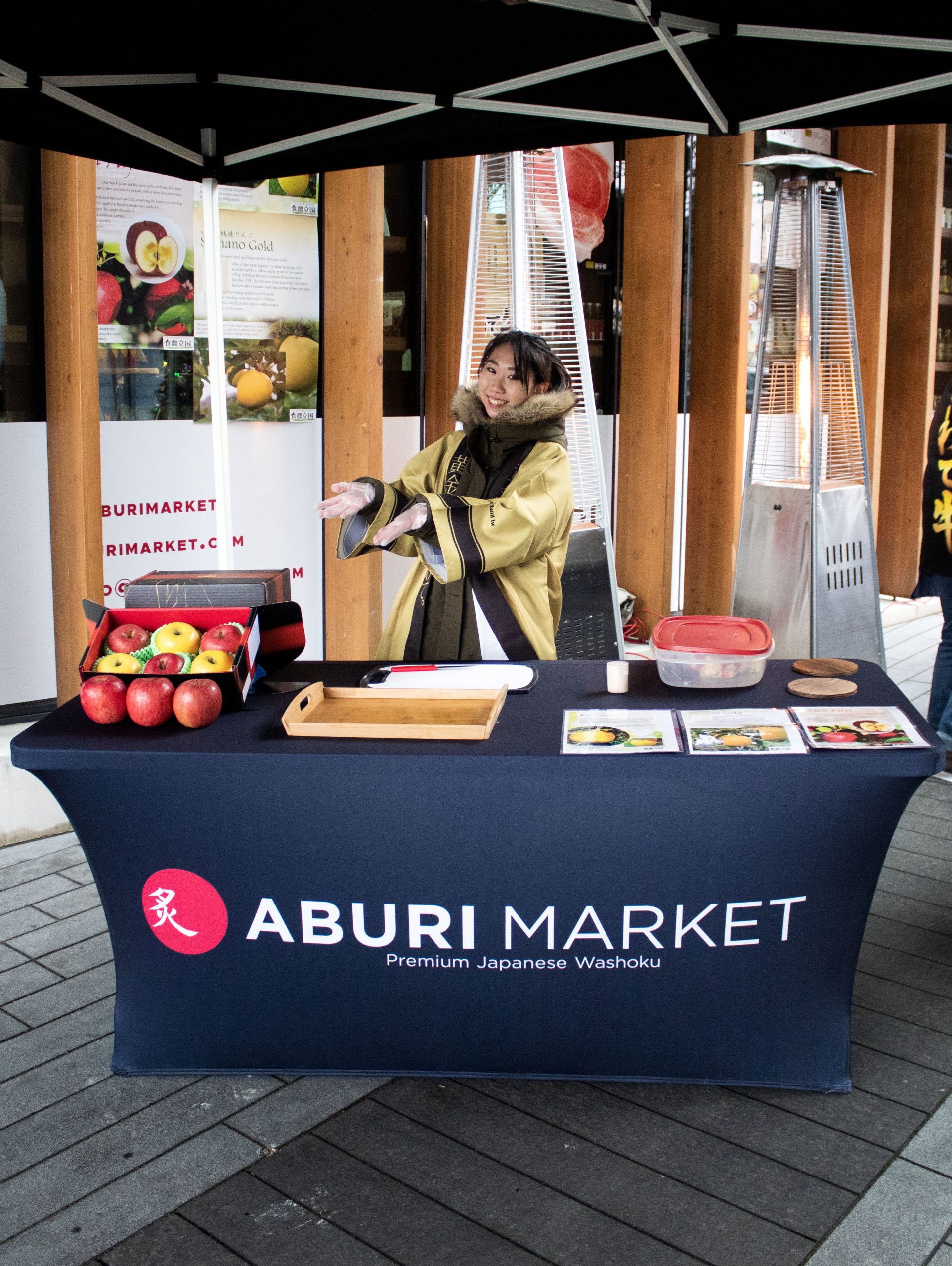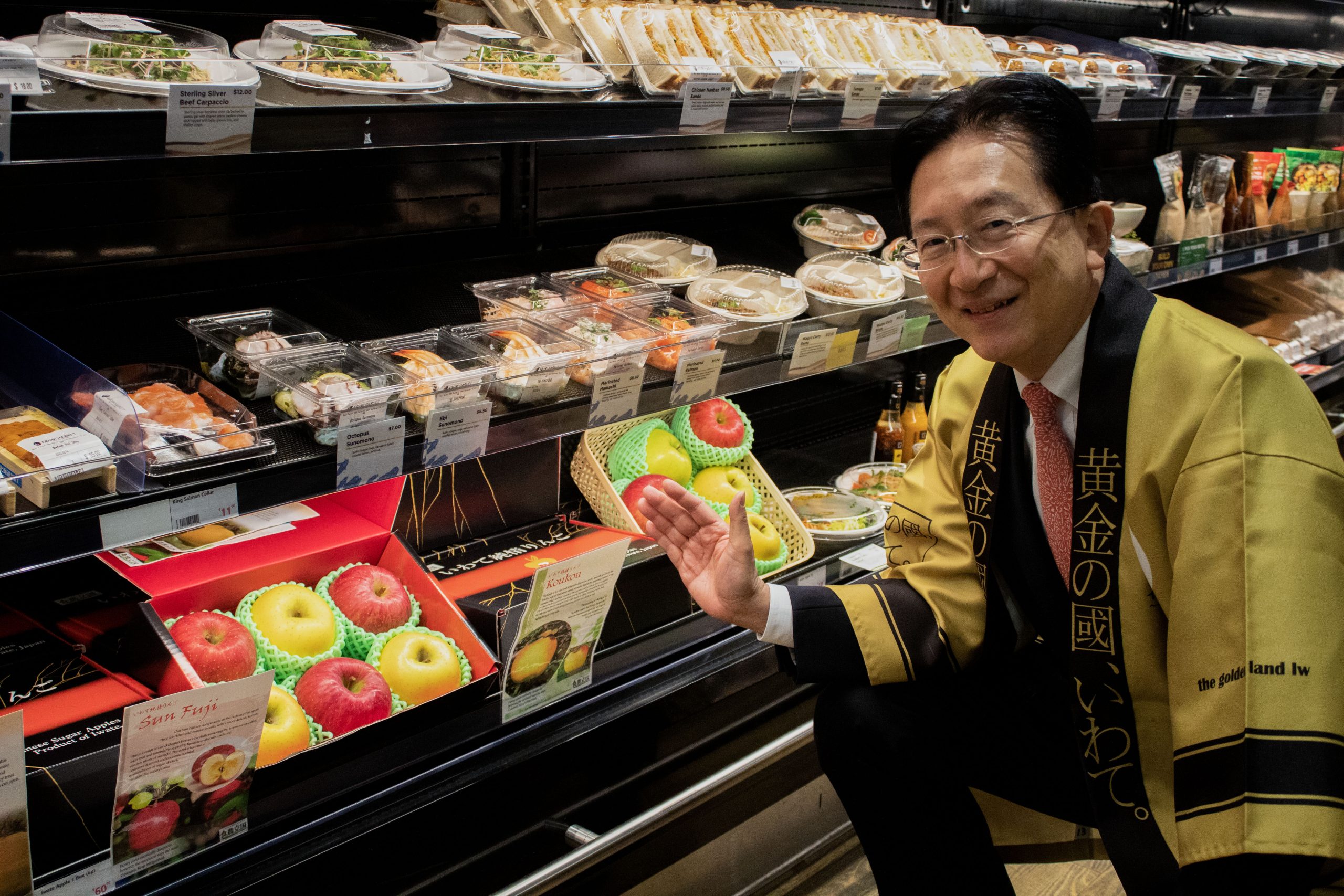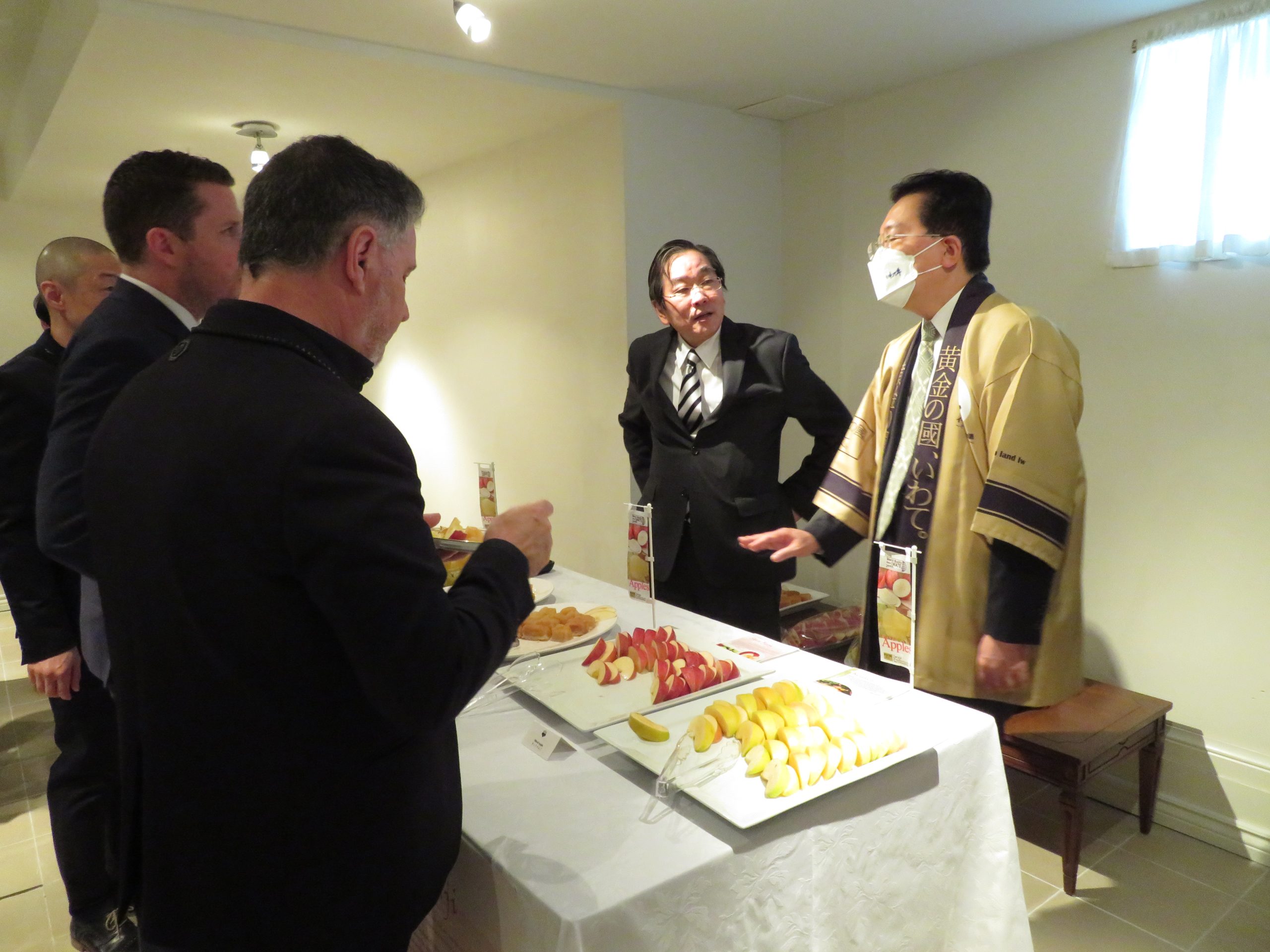Japanese Sugar Ringo

“Japanese Sugar Ringo” is produced in the Iwate prefecture, located in the northern part of Honshu Island in Japan. “Ringo” is the Japanese word for “apple”, and they were first introduced to Hokkaido, Japan in 1869 by German business man, Reinhart Gartner. Since then, apples have become a staple fruit amongst the Japanese people; moreover, like the Fuji apple, Japanese apple growers developed many unique and distinct varieties of their own.
Iwate is one of the largest agricultural regions in Japan, and its traditional farming practice is based on a cycle of sustainable farming.

Unlike conventional farming in North America, a single farm in Iwate is small to medium in size and commonly grows multiple crops simultaneously, such as rice, vegetables, and fruits, while also raising livestock. The farmers fertilize their land with their livestock’s manure and feed their animals with the straw left over after harvesting rice. By farming in this manner, nothing goes to waste, as the residual produce from one crop or animal is always used.
Additionally, the apple growers in Iwate use environmentally friendly pest control such as insect traps and pheromone lures in order to reduce the use of harsh chemical pesticides. Organic fertilizers such as manure are also used instead of chemical fertilizers to prolong the health of their precious land and encourage nature’s rejuvenation cycle.
Today, the proud apple growers of Iwate are introducing three special varieties of apples: Haruka, Sun Fuji, and Shinano Gold.



